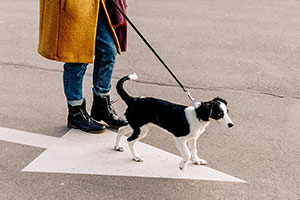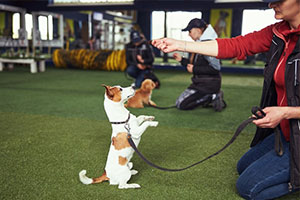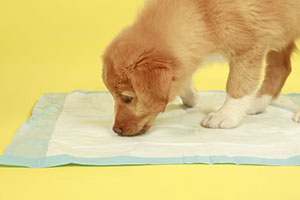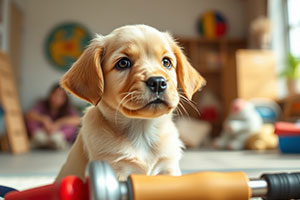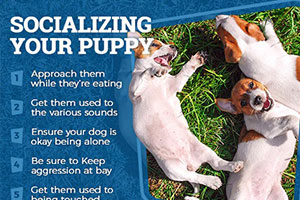Puppy Behavior
Dogs Training | by
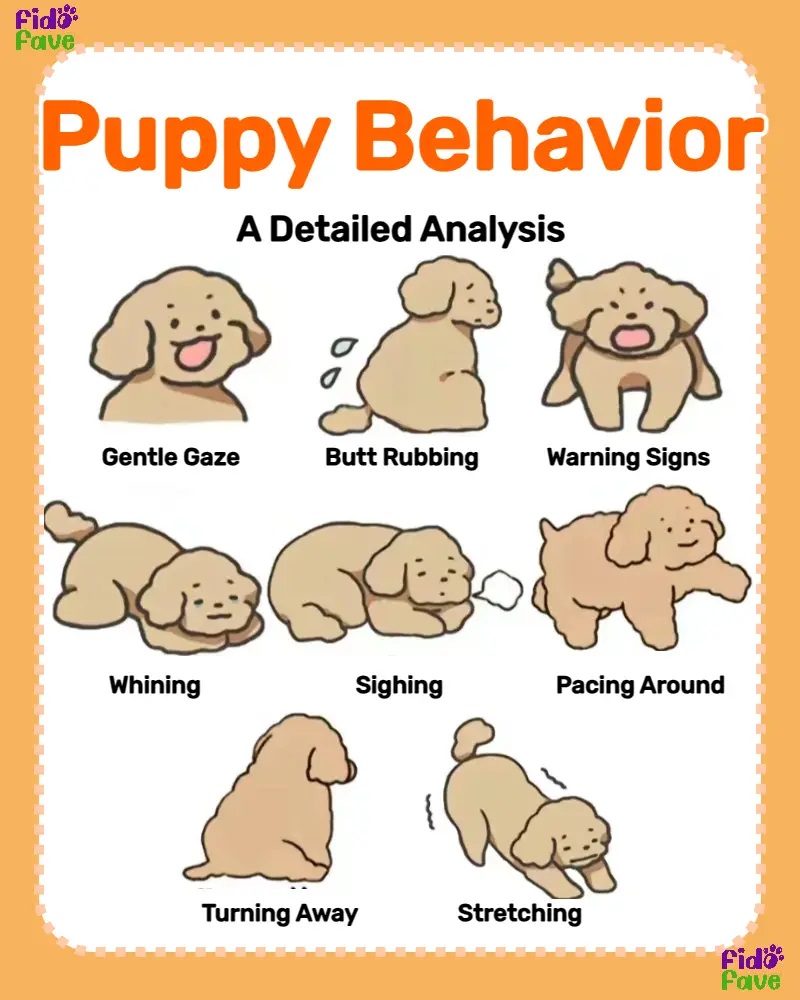
Dogs are pack animals, which explains many behavioral characteristics. When you are having problems think "pack leader" and act accordingly.
One of the pack-behavior features that all dogs bring to their relationships with human beings is hierarchy and, consequently, dominance. Puppies spend a great deal of their time trying instinctively to establish where their position is in the hierarchy, and they can only do this by attempting to establish their own dominance.
Some breeds are more dominant than others. The terriers, for instance, tend to be so; generally the gundogs do not try so hard. Being in the dominant role is not necessarily comfortable for a dog, particularly when the signals from their human companions are mixed and confusing. Most dogs settle happily in the submissive role once they are clearly placed there and learn that they do not have to attempt to keep everyone under control.
The dog's place must be established as soon as he arrives in his permanent home. He must learn that all the humans in his home are above him in the pecking order. This is not a matter of punishment for the dog. There are simple keys to make it plain.
FEEDING
The leader eats first. It is often convenient to feed the dog before you eat, but if the dog observes this, you are sending one of those confusing signals. If the family and the dog are going to eat at more or less the same time and in the same place, let the puppy wait. Puppy-feeding times are best arranged well away from your own meal times, which will avoid sending this signal.
From the start, it is useful to make the puppy come to you for his food and wait until you are ready, perhaps by teaching him to sit before you put the bowl down.
GROOMING
Touching and handling are potent signals to a dog. Daily grooming under proper control will indicate who is in charge. Some puppies will resent the handling involved - dominance again they may react as though they are being hurt. Ignore it and insist. All
puppies are capable of learning very quickly whether you really mean it.
NIPPING AND BITING
Most puppies will "mouth" things, including your fingers, when they are very young. This will progress to a nip. Mouthing is normal behavior in the young as they learn with their mouth and nose. Nipping is the first step in learning dominance. It is not amusing; stop it immediately, by a sharp reaction - the "No" it has already learned - and a tap if necessary. Remember your pack leader role!
GAMES AND FIGHTING
All puppies like to play games; they are part of the puppy's education, and in the light of that you should think carefully about them.
Avoid contest games with your puppy. Tug-of-war is fun, but can easily develop into a contest of dominance, with the puppy either winning the tug, or growling or snarling while hanging on. If you must play tug-of-war keep it on the very lowest key and stop immediately if the puppy starts to become too excited. Simply to stop and go away after retrieving the tug is probably as good a lesson as any.
Running after a suitably large ball (not a stick, please, or a ball small enough for the puppy to choke on) can be fun for the dog. But teach Your puppy to bring the toy back to you by not running after the dog to get the ball. Show indifference if the puppy runs away with the ball, and reward him with praise and pats if he brings it back to you. You have started obedience training, congratulations!
